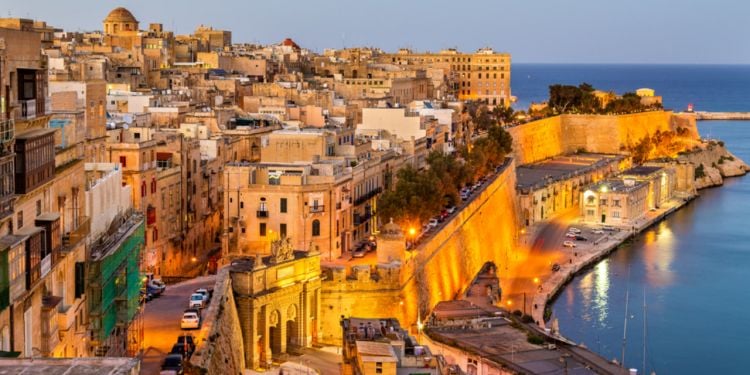
When it comes to relocating to Malta, many people think about working in Valletta. Located centrally on the eastern coast of Malta and stretching over a mere 80 hectares of land, Valletta is the Maltese capital city.
Introducing Valletta, the capital city of Malta
A baroque jewel with gardens, quays, 320 majestic monuments, palaces, churches and museums that are home to rare treasures, Valletta is the capital of Malta, and with about 5,500 inhabitants, it is also the smallest capital in the European Union. With its temperate climate, Valletta is connected to the rest of the world through its international port and airport located eight kilometers south of the city. It is named after its founder, the Frenchman Jean de Valette, Grand Master of the Order of St John of Jerusalem.
It is a pleasant city with little traffic, entirely pedestrian areas and many sloping streets with stairs. Since the control plan was established on 1 May 2007, an automated camera system checks traffic by identifying the number plates of vehicles entering and leaving the pay zone between 8 am and 6 pm. The bus terminals are outside the city. Inside the city, you can travel by electric city taxis.
Once dotted with boathouses and unloading areas, the Waterfront is now a recreational area where cultural events such as the Jazz Festival in July take place. Cruise ships can be seen calling at the Waterfront from the terrace of a restaurant or bar.
Today, the residential population of Valletta amounts to around 6,000 inhabitants. The city fills with workers and visitors throughout the day, especially during the summer when tourism is in full swing.
Valletta has been classified as a UNESCO World Heritage Site for its classic baroque architecture and monuments dating back to the 16th century. The city also hosts the national Parliament, the courthouse, administrative offices, as well as several ministries and government departments.
Finally, Valletta is deemed to be the country's cultural heart, thanks to museums, gardens, and many festivals hosted there all year round. In short, the city is the ideal place to be if you are looking to settle and work in a dynamic environment.
The economy in Valletta
Despite the lack of natural resources, the Maltese economy is booming. Its GDP is constantly increasing.
Malta has a particularly flourishing economy, primarily thanks to financial services, tourism, real estate, online gaming, electronic manufacturing, pharmaceutical products, information and technology, and call centers.
The unemployment rate in Malta stands around 2,9%, which is one of the lowest in the European Union. The economy has been growing steadily with burgeoning industries and foreign direct investment.
Valletta specifically hosts a variety of government offices and a prominent tourism sector. Working in Valletta offers employees a variety of entertainment and restaurants to choose from for working lunches and after-work events. The city buzzes all day during the summer especially, with visitors from around the world filling the streets and admiring the architecture.
Do you need a visa or permit to work in Valletta?
EU, EEA citizens and Swiss citizens do not need a work permit to work in Malta, but a residence permit is required for stays longer than three months. If you are coming from another country, you will need a visa. Your future employer will be responsible for the administrative procedures in Malta, but you will need to gather a number of documents and have a clean criminal record.
Although some export companies and online gaming companies may offer jobs to people speaking other languages (such as French, German, Italian, Spanish, Arabic, etc.), it is important to speak English to work and live in Valletta. In fact, Maltese and English are the two official languages of Malta.
Working conditions in Valletta
As mentioned above, Valletta is a very pleasant city to work in. Gathering beautiful monuments, surrounded by the sea and enjoying a lively atmosphere, it is one of the best places to work in Malta.
For an employee, the minimum wage in Malta in 2022 is €777 per month. Basic accommodation and the cost of living in Malta make it possible to live on this amount, but not go overboard. If you have experience or expertise in a specific field, you can expect a much better salary.
The working week is 40 hours, and you are entitled to 24 days paid holiday plus 14 public holidays. When you start working in a Maltese company, the probationary period can be up to one year, which can be negotiated, but you certainly have to show that you are a good professional and hard worker.
Labor market in Valletta
In Valletta, the fields in which you are most likely to find a job are tourism, catering, hospitality, gambling (there are many online gambling companies, some of which need French speakers), maintenance, marketing, IT, translation, accounting and services.
Those most likely to get a job are those who have a solid background in their field and demonstrate expertise. Specialists are particularly sought after, especially if they have good qualifications. And with references, even better!
Foreigners looking for work in Malta will fare well with a good command of English or other language abilities to offer, especially in both the government and tourism sectors.
The following sectors could be especially promising for finding work in Valletta: web design and development, marketing, finance and accounting, information and communication technology, and tourism and hospitality.
As Malta is actively involved in the global economy, local companies need staff to represent them worldwide. Italian, German, Spanish, and the Scandinavian languages are all highly sought-after language skills.
Good to know:
Many Maltese companies have an international orientation, so being able to speak several languages is a major advantage in Malta.
Finding a job in Valletta
Year-round positions are available in various sectors. Like anywhere else in the world, there are various ways to look for a job in Valletta. Start by registering with JobsPlus and with EURES (European Employment Services for EU citizens), which can provide you with relevant information and tips, as well as current job offers.
JobsPlus is Malta's public employment service. It was formerly known as the Employment and Training Corporation (ETC). It is open to everybody: Maltese nationals, EU nationals and Third-country nationals. You can sign up online or go to the Valletta JobsPlus agency, which is located at 72, Melita Street. It is recommended to make an appointment beforehand by calling (153) or sending an email (valletta.jobsplus@gov.mt).
EURES is a European cooperation network of employment services. Its purpose is to facilitate the free movement of workers within the European Union. EURES has a representation in every EU and EEA country, including Malta. As a job seeker, you can upload your CV on the EURES platform so that employers in Malta will see it.
Feel free to seek the assistance of local recruitment agencies as well. You can find these anywhere across the city and, with some patience, these can help you find the ideal job according to your profile and expectations.
You can also view offers online, thanks to several specialized job websites. There are a few job boards on the internet where you may find your dream job, and it will give you an idea of salaries and the job market. If you are looking for a job in Valletta, it is recommended to subscribe to the job boards' personalized newsletters so you will receive relevant job offers. Don't forget to do your research in English. Your CV should always be written in English, as well as all documents proving your professional experience. Here are the best job sites to find a job in Valletta:
Keepmeposted is one of the largest job search engines in Malta. It is very popular amongst Maltese employers.
Maltapark is one of the most used websites and platforms in Malta. It is a must-known if you are planning to live in Malta and work in Valletta. Its jobs section gathers a good listing of jobs in various sectors.
Maltajobport is another interesting job board that will help you find a job in Valletta. You just need to register for free, write a cover letter and upload your CV.
Don't underestimate the power of social media to find a job in Valletta. LinkedIn, the world's largest professional network on the Internet, is growing popular in Malta. Pay particular attention to your LinkedIn profile and don't forget to mention Malta as your location. Interested companies and job agencies will contact you. They are always looking for new talented professionals in Valletta.
Don't neglect Facebook, either. This is the most used social network in Malta. Maltese use it for almost everything: finding a job, accommodation, second-hand goods, making new friends, etc. Employers usually post vacancies on dedicated Facebook groups, such as Jobs in Malta.
Consider sending job applications directly to companies that interest you as well. With such a quickly expanding economy, many companies are consistently recruiting to sustain their growth.
Valletta is a very small city with a human dimension, so you can make initial contact by email, but meeting recruiters face-to-face is much better. On the spot, you will get appointments easily, so don't hesitate to go to the premises, even without an appointment.
Remember to be flexible in your job search as you familiarise yourself with local customs and office etiquette. Norms will differ from your home country and work environment, so don't be afraid to ask questions to clarify as needed.
Main institutions and companies in Valletta
As the capital city of Malta, Valletta is the house for most of the Maltese institutions: Grandmaster's Palace (hosting the President of Malta), Auberge de Castille (Prime Minister), a lot of Maltese ministries and countries' embassies and consulates such as France, Switzerland, Panama, etc. Some European institutions are also located in Valletta and hire people from all over Europe: the European Commission Representation (254, St Paul Street); the European Union Agency for Asylum (EUAA, Marsa).
A lot of restaurants and shops can also be found in Valletta. There are some restaurants, fast food, tea shops and ice-cream parlors that are famous all over Europe and even the world: MacDonald's, Amorino, Häagen-Dazs, etc. If you have a work experience in one of these companies, it can be a good idea to go for them when looking for a job in Valletta. Valletta also has a lot of local restaurants offering both Maltese and international cuisine. If you are a chef mastering your country's cuisine (for example, Italian, Indian cuisine, etc.), you might find good work opportunities in Valletta. As Valletta also counts some shops, you can try to apply for a shop assistant position if you have a work experience in retail stores.
Finding a seasonal job in Valletta
Not all expats are coming to work in Valletta for a long period. You might wish to stay and work in Valletta for only a few months. It is a good idea to get work experience abroad, especially in an English-speaking country such as Malta. Finding a seasonal job in Valletta is the perfect deal to improve your CV, English and professional skills while enjoying the sun and the beautiful capital of Malta.
During the tourism season, the demand for seasonal workers is high. The main hiring sectors in Valletta are restaurants, the catering sector and tourism. Unlike office jobs and managerial positions, the hiring process in seasonal jobs is often informal in Valletta. Here is one of the best ways to find a seasonal job and work in Valletta: to take a stroll in this beautiful city. Target the main streets, such as Republic Street and Merchants Street. Some restaurants, bars and even shops stick flyers on their doors advertising job offers. When you see one, don't be shy and just go inside to introduce yourself. You will maybe manage to get a short trial period. If your skills meet the business owner's requirements, you will be hired.
Useful links:
We do our best to provide accurate and up to date information. However, if you have noticed any inaccuracies in this article, please let us know in the comments section below.
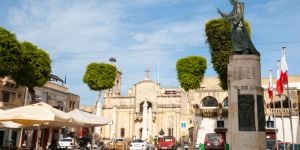

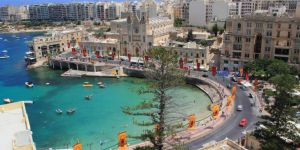

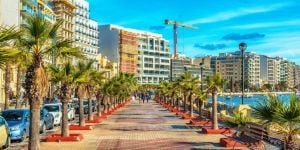

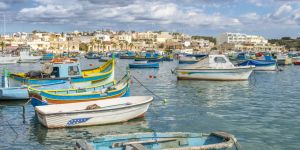





Comments